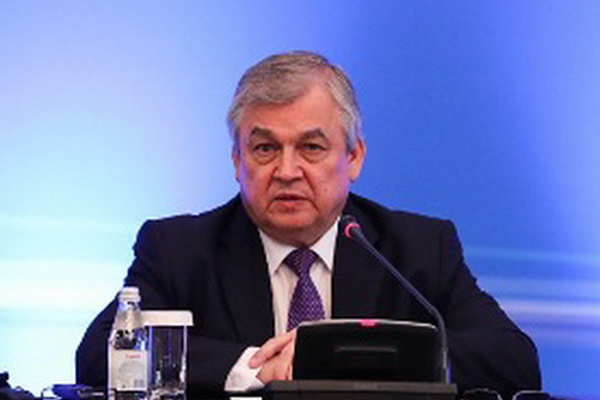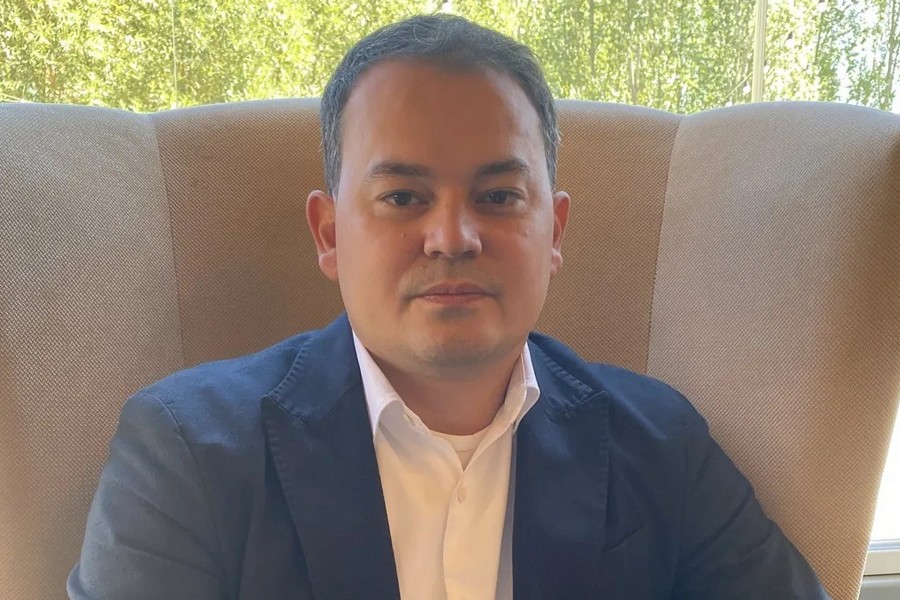Russian President's Special Representative for Syria Alexander LAVRENTYEV:
AS A WHOLE THE SITUATION IN EASTERN GHOUTA DOES NOT THREATEN THE FUNCTIONING OF THE DE-ESCALATION ZONES IN SYRIA

The current situation in Eastern Ghouta does not threaten the functioning of the de-escalation zones in Syria, provided that the armed opposition fulfills its commitments undertaken earlier, Russian President's Special Representative for Syria Alexander LAVRENTYEV said in an interview with Interfax-Kazakhstan.
- Are the ceasefire guarantor countries in Syria succeeding in agreeing with the main groups of the Syrian armed opposition on their withdrawal from Eastern Ghouta?
- Negotiations are ongoing. How they behave [the opposition] such reaction will be from the Syrian government troops. They the [opposition] were proposed many times that it is necessary to lay down their arms, it is necessary to separate themselves from Jabhat al-Nusra [a terrorist group]. They do not do this, they seek out any pretexts in order to delay this process, regroup, get weapons and continue fighting again. They were told straightforward that, guys, let's make a normal de-escalation zone, you will stop fighting with the government forces, stop shelling them. But this has never happened, and everyone the [opposition] shelters behind the fact that they cannot influence the Jabhat al-Nusra factions. Well, enough is enough? Well, one year has passed, two passed, well, it should not be done like that. Every day people are dying in Damascus.
In February there were more than 200 [cases of] shelling, several dozen were killed and hundreds wounded. Now in Eastern Ghouta the situation seems to be developing more or less normally. Thank God, now, thanks to our military, who are on the ground there, the [government side] managed to agree with the militants that they would release civilians. They use them [civilians] as human shields.
- Will the humanitarian corridor continue to act further?
- We opened several more humanitarian corridors. In Duma [a town 10 km away from Damascus] they are already functioning, no one has waged hostilities there for four days already. Humanitarian aid is delivered there. I think these are good symptoms. But they [terrorists] should understand that if they continue fighting the government, they will be destroyed. Everyone will be destroyed; it's just a matter of time.
- Does the situation in Eastern Ghouta put the functioning of the de-escalation zones in Syria under threat?
- No, why. If there were no constant threats to Damascus, deaths of civilians, then this zone would exist further. We think that it can continue to exist further if they [the armed opposition] undertake commitments [on ceasefire]. The main thing is that it does not happen so that again they will undertake temporary obligations but then shelling will continue.
- It was reported that Turkey and the United States have an agreement that Turkey will take control of Manbij. Did they inform the Astana format partners of that, and what reaction followed?
- As far as I know, the Turks, of course, believe that the Kurdish self-defense units must withdraw from there, must cross onto the eastern bank of the Euphrates River. But the Americans say that they are there [in Manbij], so they will not give the go-ahead for Turkish military servicemen to come over. We will see, time will tell.
- It happens that has Turkey not yet approached the partners in the Astana process with such intentions?
- No, they have not voiced [that]. We know that the Turks have plans to take Manbij and take control of Afrin. Time will show how events will develop. As it's said, here it is impossible for Kurds to wear two hats. It is necessary either to return to the family of the Syrian people, or to carry on gaining independence, as the Arab Kurds tried to do and receive a blow on the head for that accordingly from the Turks, the Iranians, the Syrians and the Iraqis. Because none of the states is ever going to offer an opportunity to create an independent state on the part of Kurdistan.
- Was the agenda of the next negotiations on the Syrian settlement in Astana discussed, which will be held in mid-May?
- The agenda is the same – the stabilization of the situation, the cessation of hostilities, the work of the group on exchanging prisoners and detainees, humanitarian aspects.
- Thank you for the interview!
March, 2018
© 2025 Interfax-Kazakhstan news agency
Copying and use of these materials without reference to the source is prohibited
Archive





